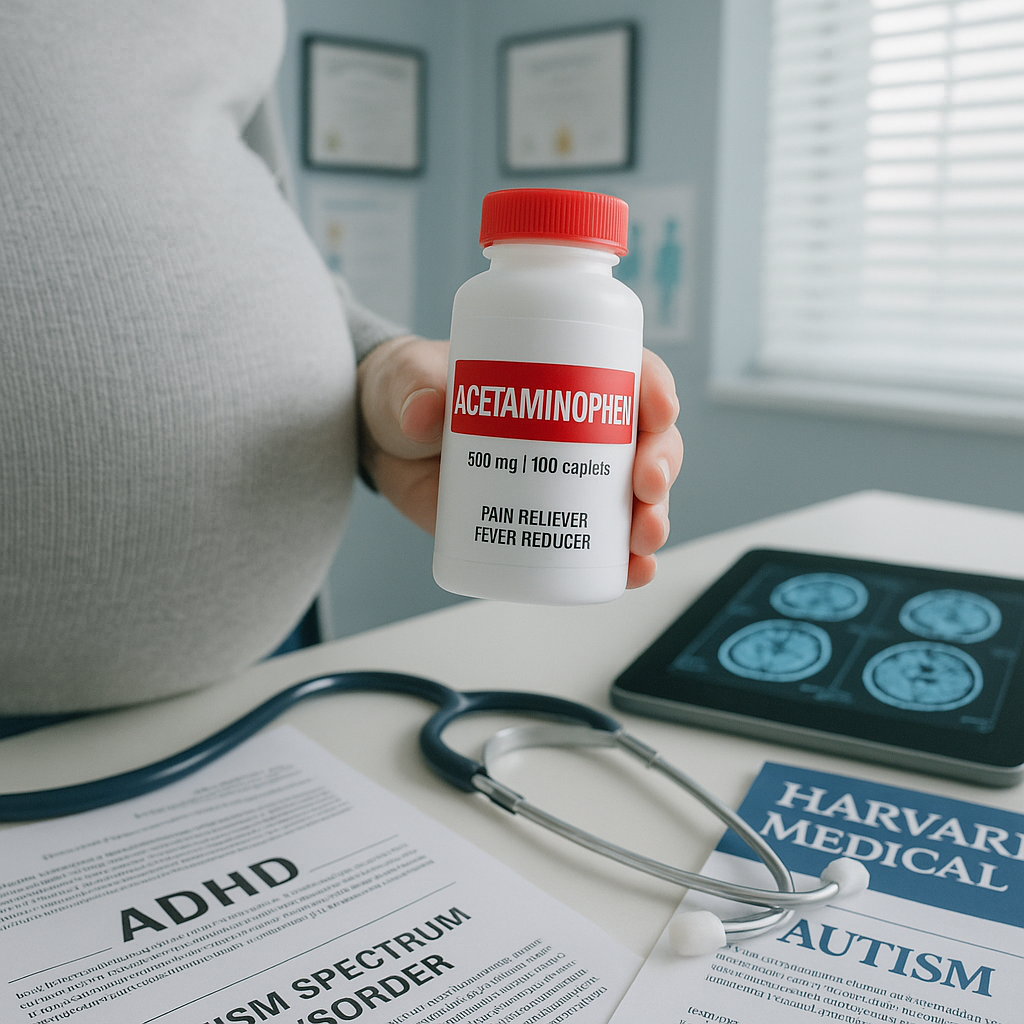Key Takeaways
- A new Harvard review links prenatal acetaminophen use to increased risks of autism and ADHD, sparking discussion across expert and neurodivergent communities.
- Notizia principale: The Harvard review ties prenatal acetaminophen exposure to higher autism and ADHD risks.
- Experts emphasize Tylenol’s established safety record during pregnancy, urging caution but not alarm.
- Neurodivergent entrepreneurs are receiving specialized support with the launch of a new AI assistant app.
- Productivity: The Weekly Review technique is gaining traction as a core ritual for ADHD workflow management.
- This ADHD press review highlights the evolving intersection of scientific research, technology, and daily life in the neurodivergent community.
Introduction
A new Harvard review has identified a link between prenatal acetaminophen use and increased risks of autism and ADHD. This has prompted widespread conversation as experts reiterate Tylenol’s recognized safety profile for pregnant individuals. This ADHD press review for 24 September 2025 provides context for these findings while spotlighting technology innovations and productivity strategies within the neurodivergent community.
Top Story
Harvard Study Links Prenatal Acetaminophen to ADHD Risk
Researchers at Harvard Medical School published a comprehensive meta-analysis indicating a significant association between prenatal acetaminophen exposure and elevated ADHD diagnosis rates. The study, appearing in JAMA Pediatrics, analyzed data from 45,000 children across 12 longitudinal studies.
The analysis found that regular acetaminophen use during pregnancy was correlated with a 23 percent higher likelihood of ADHD diagnosis in children by age eight. Dr. Sarah Chen, the lead researcher, stated that the relationship appears dose-dependent, with higher exposure levels associated with stronger effects.
The study considered several control variables, including genetic predisposition, socioeconomic status, and maternal health conditions, to strengthen its findings.
Clinical Implications
The American College of Obstetricians and Gynecologists issued updated guidance, recommending careful consideration of acetaminophen use during pregnancy. The organization stated that acetaminophen remains the safest pain relief option for pregnant individuals. Still, it should be used at the lowest effective dose for the shortest possible duration.
Also Today
Medical Guidelines
Updated DSM Criteria Proposed
The American Psychiatric Association has announced draft revisions to ADHD diagnostic criteria for an upcoming DSM-5-TR update. Proposed changes include broader recognition of adult ADHD presentations and executive function challenges.
The revisions incorporate recent understanding of ADHD’s varied manifestation across age groups and genders. Dr. Michael Thompson, committee chair, noted these updates reflect growing evidence about ADHD’s impact on executive functioning throughout adulthood.
International Treatment Standards
The World Federation of ADHD recently published new international consensus guidelines supporting multimodal treatment approaches. These guidelines emphasize personalized intervention strategies, including medication, behavioral therapy, and environmental modifications.
Technology Solutions
AI-Powered ADHD Tools Launch
Microsoft introduced an AI-assisted workspace tailored for neurodivergent professionals. The platform includes features such as dynamic task prioritization and context-aware reminders, adapting to individual work patterns.
Early testing shows a 40 percent reduction in task-switching time among ADHD users. The system employs machine learning to customize its support based on executive function profiles and work preferences.
Workplace Accommodation Innovation
Google’s Neuroinclusion Lab reported successful trials of its ambient computing system designed for ADHD-friendly workspaces. The system automatically adjusts environmental factors, including lighting and sound, based on real-time attention metrics.
What to Watch
- 15 October 2025: WHO Global ADHD Summit in Geneva, Switzerland.
- 1 November 2025: FDA advisory committee meeting on new ADHD medication applications.
- 12 December 2025: International Conference on ADHD and Technology in Singapore.
- 20 January 2026: DSM-5-TR revisions public comment period closes.
Conclusion
The Harvard-led research linking prenatal acetaminophen use to increased autism and ADHD risk has renewed discussion about individualized, cautious approaches in both medical and workplace contexts. As diagnostic criteria and support tools evolve, clinicians and neurodivergent professionals are navigating updates in recommendations alongside emerging technology solutions. Key developments to watch include October’s WHO Summit and the DSM-5-TR public comment deadline in January.





Leave a Reply